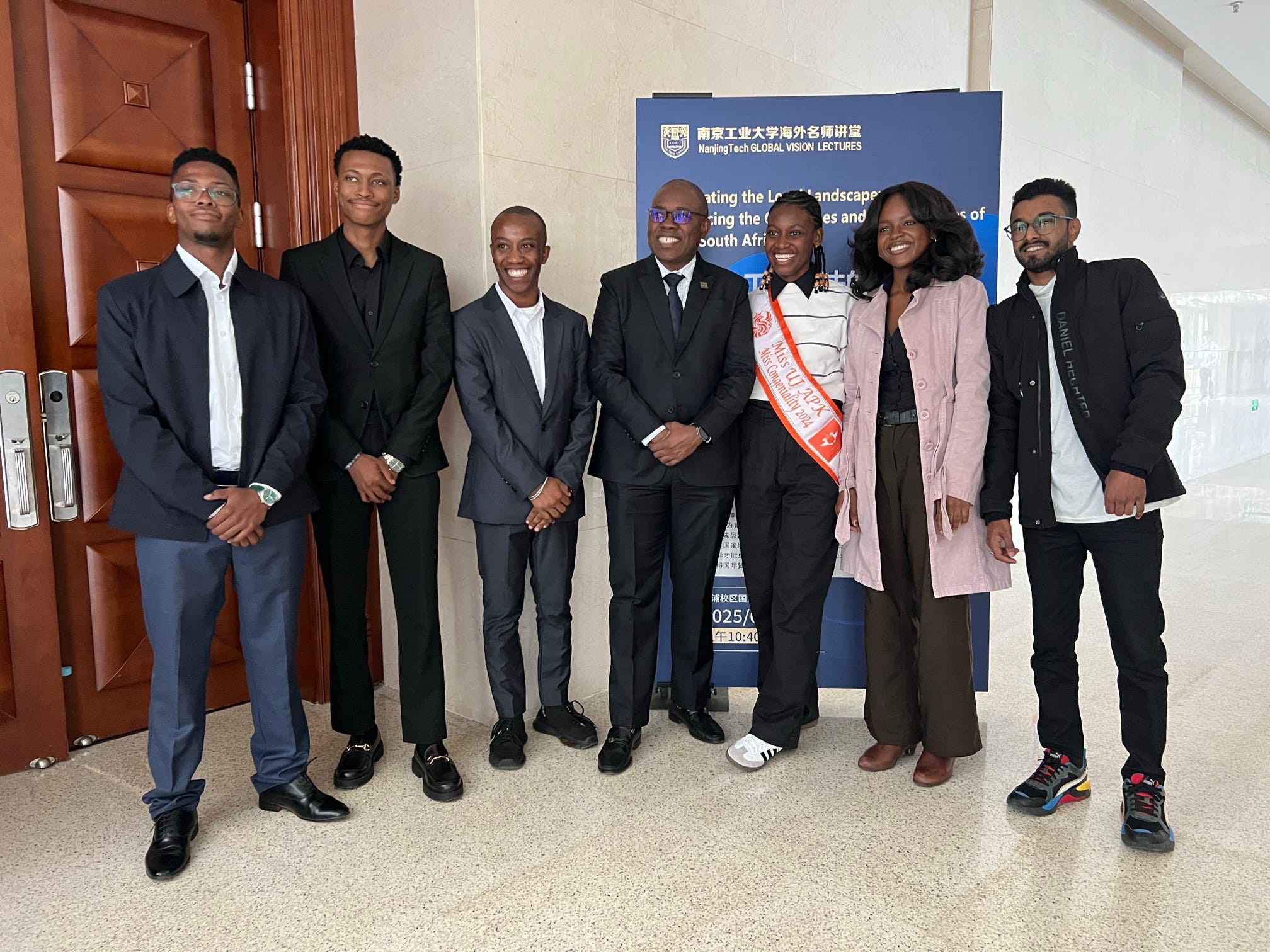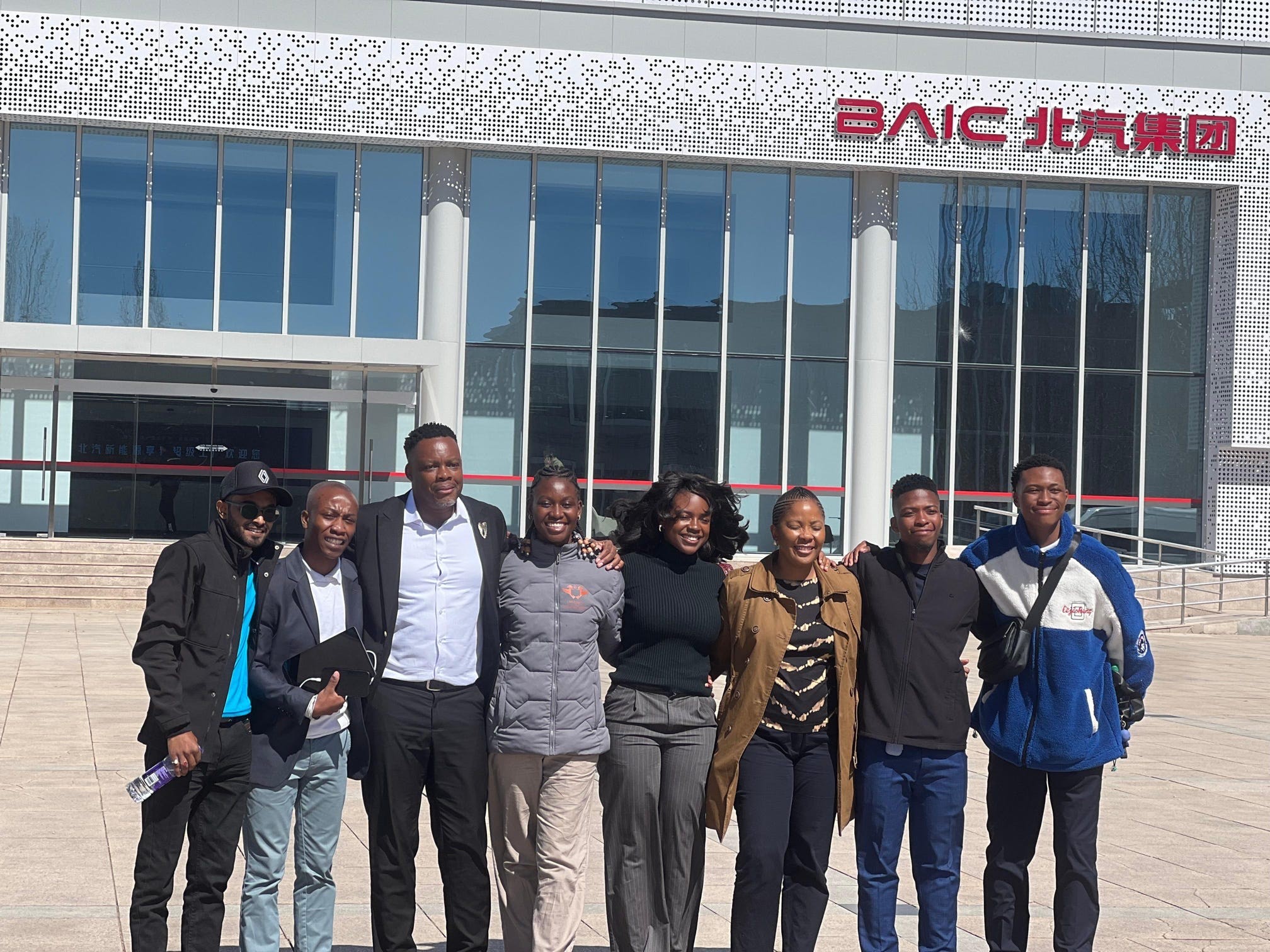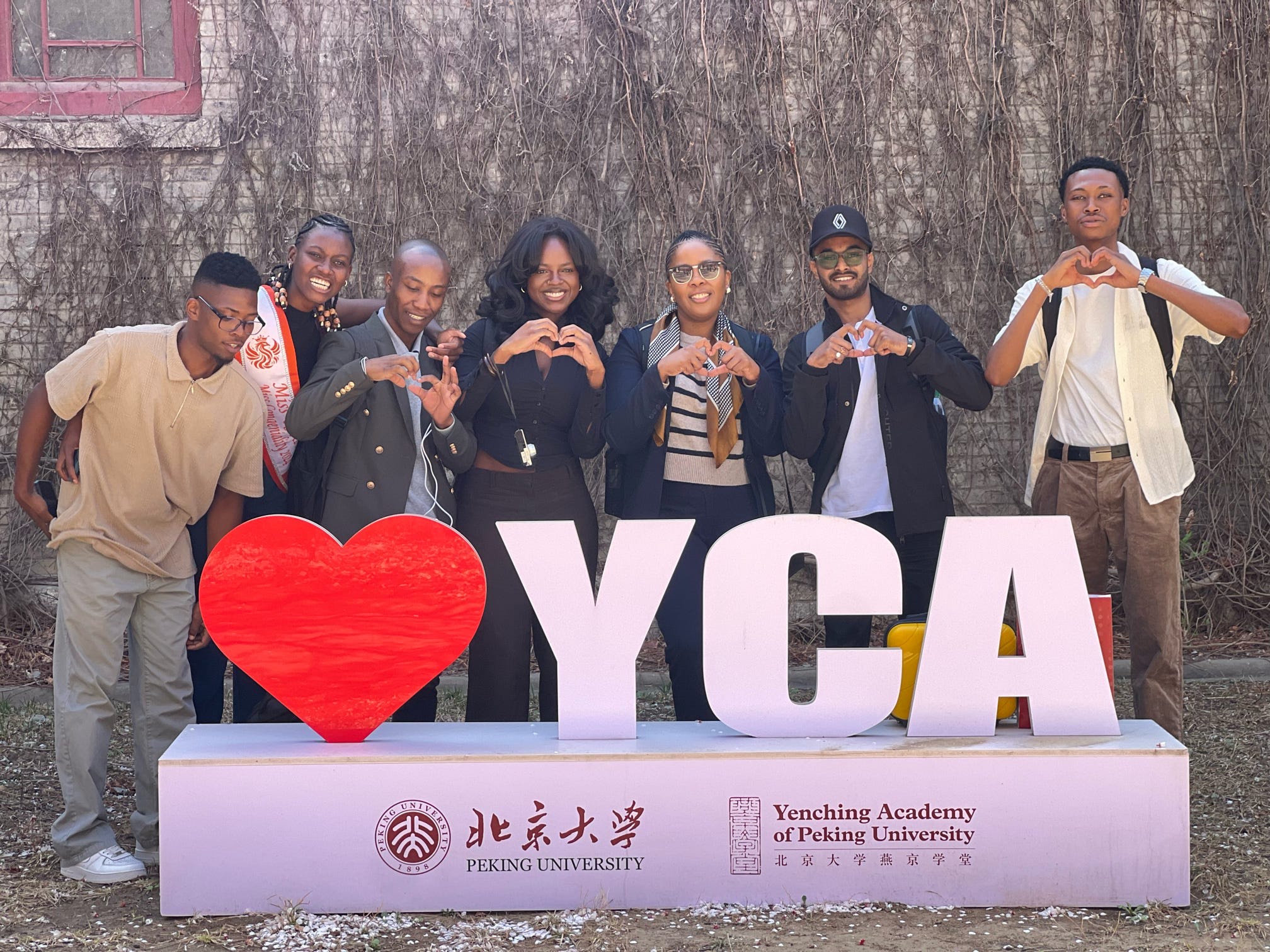The Innovation Start-Up Exchange Programme (ISUEP), also known as “China by Train”, is a pioneering initiative that connects South African and Chinese students through joint learning, skills exchange, and exposure to best practices in entrepreneurship and start-up development.
Inspired by the University of Johannesburg’s successful Africa by Bus project, this pilot programme strengthens international mobility and collaboration in the context of innovation and global engagement.

Held from 22 March to 4 April 2025, the immersive experience took a cohort of UJ students across Beijing, Shanghai, and Nanjing, where they participated in academic sessions, engaged with industry leaders, and immersed themselves in Chinese culture and student life.
Learning across leading Universities
In Beijing, the group attended lectures at the Yenching Academy of Peking University, exploring the evolution of China studies through the lenses of language, politics, and the economy. Later in the programme, at Shanghai Jiao Tong University, students engaged in discussions on innovation ecosystems and cross-border entrepreneurship.
At Nanjing Technological University, they had the unique opportunity to attend a lecture delivered by UJ Vice-Chancellor and Principal, Professor Letlhokwa Mpedi, reinforcing the growing academic ties between South African and Chinese institutions.

Reflecting on this academic exposure, Nevimbo Chicheko, a student in Electrical and Electronic Engineering, was particularly inspired by the visit to UM-SJTU’s Technology Transfer Office, where he saw first-hand how engineering and entrepreneurship are seamlessly integrated. “The experience challenged me to broaden my perspective and deepened my understanding of innovation on a global scale,” he said.
Exploring China’s innovation landscape
The programme also offered hands-on learning through site visits to leading innovation hubs and industrial operations. In Beijing, students toured the BAIC automotive plant, observing the end-to-end production of the Stellato 9 electric vehicle and even test-driving the final product.

For many, including Mpeakhe Moloi, this was a highlight: “Seeing the manufacturing of high-end electric vehicles up close was surreal—especially for someone from a modest background. It was an honour, and a reminder of what is possible.”
In Shanghai, the group visited Zhangjiang Innovation Park, where they explored a pharmaceutical testing centre and learned about collaborative research projects that bridge science and entrepreneurship. In Nanjing, they met with the JSTI Group, a hybrid public-private company specialising in road infrastructure solutions. Discussions at JSTI focused on potential collaboration and opportunities for postgraduate placements in high-tech research environments.
A platform for aspiring entrepreneurs
A key element of the exchange was engagement with start-up incubators, most notably NeoBay at Shanghai Jiao Tong University. This dynamic platform links students, researchers, investors, and industry leaders to drive innovation in science and technology. Through NeoBay, the students were granted access to a free online International Business Acceleration Programme, offering practical support for scaling start-up ideas and accessing international networks.

For Moloi, the entire programme provided insight not only into technological advancement but also into the foundations of entrepreneurship: “The universities and companies we visited taught me how to approach meetings, build networks, and seek out research and funding support for start-ups. It was a deeply empowering experience.”
Building global citizens
“The China by Train programme forms part of UJ’s integrated mobility initiatives, designed to foster cross-cultural understanding, reduce stereotypes, and build mutual respect between South African and Chinese youth,” explains Mr Lebethe Malefo, Director: Study Abroad, Division for Global Engagement. “It also aims to equip student entrepreneurs with practical insights into starting and managing a business, while enhancing their personal and professional development.”
As UJ continues to champion global engagement and innovation-driven education, programmes like ISUEP underscore the university’s role in shaping future-ready graduates with the skills and perspectives to thrive in an interconnected world.



